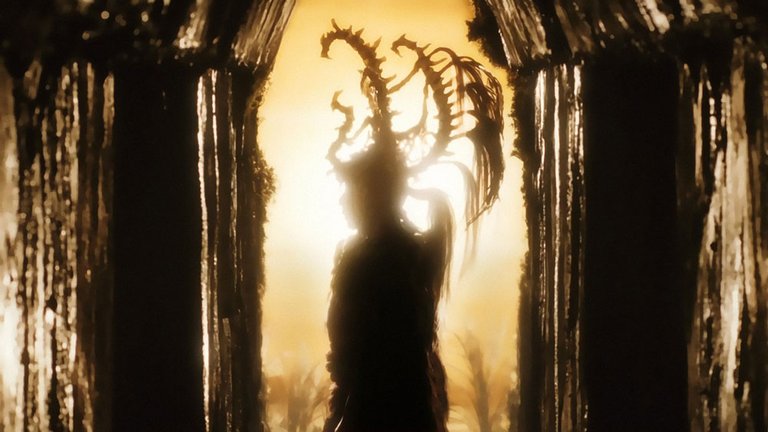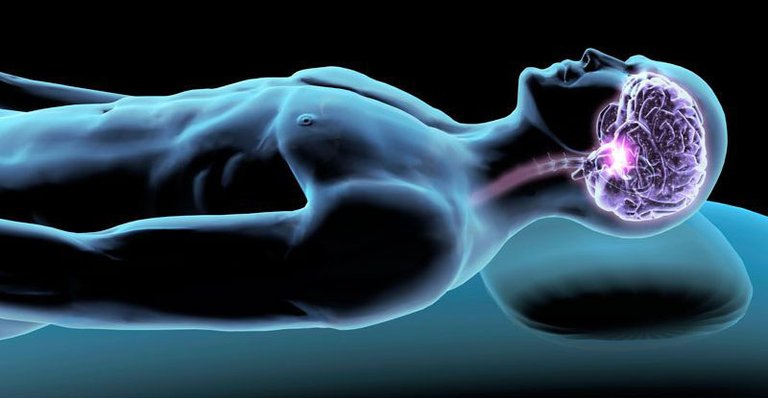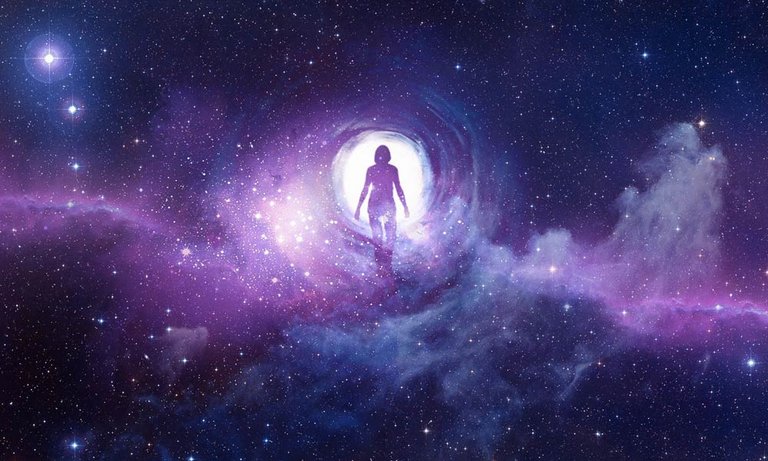Hey friends, from today I am going to start a new series named “Simple Questions”. I shall be discussing a series of very simple questions but answers won’t be that simple. Some questions will be such that, even science will fail to provide a perfect answer. Hope you enjoy the episodes.
Today’s episode is about a very simple question “Why do we dream?” Will answer be that simple? Let’s see. ;)

Why do we have dreams? What purpose do they serve? — you may have wondered about such questions at some point in your life. Well, you are not alone; even the greatest philosophers had been troubled by these questions for thousands of years. With the development of Science and Technology the philosophers became scientists. In modern era also, scientists were fascinated about dreaming and carried out research and study for it. Different scientists gave different theories, but still we are not able to find an accurate reason which can be accepted unanimously.
As there is no perfect theory regarding it, so first discuss them one by one and try to find a conclusion at the end.
Wait, before going to these complicated theories, first let's see what a dream is?
What is a Dream?
Dream is basically the images, visuals or ideas (thoughts) that we experience during sleep. It may be sometimes understandable and very much realistic, but in other instances very much confusing and illogical.
- The study of dreaming is called "Oneirology".
So, why do we Dream? What is its Purpose?
We spend one third of a day sleeping and dreaming, but still we haven't found the right cause of dreams. But we should not forget that science is still studying the functioning of brain and not even found the right cause of sleep. So it is obvious, dream is a bit more complicated than sleep and scientists will take more time to unravel the truth.
But still many theories have been put forth and experiments are being carried out. According to some researchers, dreams serve no real purpose while others believe that dreams are important for physical, mental and emotional well-being.
Now let’s discuss some of the most prominent dream theories.
1. An Evolutionary Defense Mechanism or Threat Simulation

Some experiments and research have suggested that like many other animals, humans may also have had the “playing dead” or “pretending dead” mechanism in primitive stage. This is concluded from the fact that there is a convincing similarity between a man dreaming and an animal pretending dead to befool its enemy. According to this theory human dreaming is very much related to the playing dead mechanism or tonic immobility found in some animals like sharks, lizards, rabbits and other small mammals and birds.
During a REM (Rapid Eye Movement) sleep when we dream our brain behaves normally but our body remains in complete immobility as chemicals like dopamine which control movement are completely shut down. Tsoukalas suggests that this is similar to what some animals do when they are confronted with a sudden danger.
When rabbits are confronted with apparent threats, they suddenly become rigid and unmoving (a temporary paralysis). In fact, they can often seem to be completely dead, which is usually their last line of defense when “fight or flight” is no longer an option.
So it is possible that our ancestors may have this "playing dead" mechanism which retained even after evolution but in a different form which we call “dream”.
There is a sister of the tonic immobility theory, i.e. "Threat Simulation Theory". Threat simulation theory is proposed by a Finnish neuroscientist, Antti Revonusuo. According to him,
"The biological function of dreaming is to simulate threatening events, and to rehearse threat perception and threat avoidance".
So a person having this type of dream will more likely survive if he faces similar threat in waking hours. But, unfortunately this theory does not explain my recurring dream of eating Momos!
2. Problem Solving and Idea Generating

Researchers like Deirdre Barrett suggest that dream is a world where we can solve problems and even bring new ideas more effectively than we are awake. This is because at that time the mind remains in an isolated and stress-less condition, it doesn't have to take and process a lot of input as it does when we are awake.
You may or may not have experienced solving a problem in dream. But, many of our greatest scientists and mathematicians have definitely experienced it and even have made many groundbreaking discoveries in their dreams. One of the greatest mathematicians, Srinivasa Ramanujan, said that the Hindu goddess Namagiri would appear in his dreams, showing him mathematical proofs, which he would write down when he awoke.
And the charismatic professor, Dimitri Mendeleev, discovered the "Periodic Table of the Elements" in his dream. He said
"In a dream I saw a table where all the elements fell into places as required. Awakening, I immediately wrote it down on a piece of paper".
Even other scientists like Rene Descartes, Otto Loewi, Alfred Russell Wallace etc. have made remarkable discoveries with the help of their dreams.
What will you say about these shocking facts? ...now don't say that " Aliens" helped them through their dreams — as some TV series have suggested. :D
There is another theory similar to this, called “Oneiric Darwinism”, according to which we generate new ideas and thoughts in dreams. According to the psychologist Mark Blechner, the reason we dream is to:
“Create new ideas, through partial random generation, which can then be retained if judged useful”
Besides ideas, emotions are also a part of this theory. Some researchers suggest that in dreams we face various situations and try to react to them through different emotions which help us to figure out the best way to react to a certain situation.
3. Psychoanalytic Theory

This theory is proposed by the psychoanalyst, Sigmund Freud. He was probably the first person to do a scientific study on dreams in the early twentieth century. According to his “Psychoanalytic Theory”, dreams represent those unconscious desires and thoughts which are suppressed by us during conscious state. In his book “The Interpretation of Dreams”, Freud writes that dreams are
“disguised fulfillments of repressed wishes”.
After studying the dreams of his patients, he suggested that dreams are nothing but wish-fulfillments. Whatever may be the dream, it may be symbolically seen as a desire you want to fulfill.
Say for example, you had a bad and terrifying dream about your own death. Well, why will that be a wish-fulfillment? Maybe Freud would say, you are facing a lot of difficulties in day-to-day life or have conflicts with near and dear ones, that can easily be resolved when you will not be there.
Freud’s theory resulted in the popularity of ‘dream interpretation’. Freud helped many of his patients to deal with their hidden emotions buried in consciousness.
4. Activation-Synthesis Theory

Besides Freud’s psychoanalytic theory, there is another popular theory proposed by J. Allan Hobson, which he calls “Activation-Synthesis Theory”. This theory suggests that during a REM sleep many circuits in the brain get activated which causes stimulation of the limbic system that’s involved with emotions, sensations and memories. The brain tries to process and interpret this internal activity and attempts to find meaning in these signals, which results in dreaming. In a nutshell, dreams are the subjective interpretation that brain tries to make out of the random signals generated during sleep.
Although the dreams are the results of these random firing in the brain, Hobson does not believe that they are meaningless. He suggests that dreaming is
“our most creative conscious state, one in which the chaotic, spontaneous recombination of cognitive elements produces novel configuration of information: new ideas”
5. Information-Processing Theory

This is one of the major theories that deals with "Why do we sleep?". Sleep allows the brain to process all the information and data that it has collected throughout the daytime. Experts suggest that dream may be an outcome of this information-processing. In the daytime we deal with various information and memories, our sleeping mind creates various images, visuals and ideas to manage all these activities going on inside our brain. Studies have shown that people remember what they have learnt better if they dream after learning it.
This theory is supported by recent studies on trauma. It has been seen that people who sleep just after a traumatic experience, tend to remember and be haunted by the traumatic experience more likely. So it is suggested by the experts to keep the traumatized people awake for some hours after such experience.
Jie Zhang's “Continual Activation Theory” suggests similar effect of dreams. According to Zhang, our brain keeps on storing various information and data that it comes across, whether we are asleep or awake. Only the difference is that, during conscious state brain stores all the information and data on a short-term temporary storage but when we sleep, it selects all the important information and transfers them to permanent (long-term) memory. So, the memories which are being stored permanently flash through our minds as dreams.
Conclusion
After discussing so many theories, we can confidently say that dreams are not useless. They are important for at least our mental well-being. Dreams are based on the events and data that we come across. We cannot have a dream of an alien planet with alien creatures until we have seen it in movies. It may be possible that our dreams are made out of the random electrical impulses of the brain. But, human brain is so much smart that it creates something meaningful out of that random data. Like when we see uncountable random stars in the night sky, our brain may visualize some pictures from that random placements of stars.
Well, randomness is the key of the formation of new things. Life emerged on earth due to random bonding of some elements. And we evolved as human beings. So, randomness may create something new, like what happened to many great scientists. August Kekulé discovered the structure of ‘benzene’ in his dream which was a breakthrough in the study of chemical bonding and opened up new field of Aromatic Chemistry.
So dreams can be useful if we try to find some new ideas through them. A Dream is another world of freedom and randomness, if you try then you can take control of it. Some researchers even say that our subconscious mind keeps on creating dreams day and night, but we have access to it only when we sleep.
Some Fascinating Facts About Dreaming
Lucid Dreaming

Lucid dreaming is that type of dreaming, when you become aware of the fact that you are dreaming. During a lucid dream you can control the dream as you like. You will be the king of the dream world. If you practice dream checks (like counting your fingers, checking printed texts) regularly in real life, it is possible that you will do the checks also in the dream. Once you find that you are dreaming, you can enjoy it to the full. As you become more expert in lucid dreaming, your brain also becomes smarter in creating realistic dreams. So many experts of lucid dreaming sometimes face difficulty in differentiating dream from real life.
Sleep Paralysis

Sleep paralysis is a state when your body gets asleep while your brain remains awake. In that situation you cannot speak or move your muscles. You are actually trapped in your own body. This case is somewhat similar to what we discussed in the first theory of dreaming i.e. tonic immobility.
Astral Projection

This is what we call a willful out-of-body experience. [You must have seen it in the MCU movie, "Dr. Strange"]. I don't believe much in this idea, but many people have claimed to practice it. Its accounts can be found in many ancient and mediaeval literature. Astral projection can be practiced while we sleep. Many say that it can be achieved after we become expert in lucid dreaming. Some say that attaining sleep paralysis through meditation and focus is the first stage of learning astral projection. There are various methods discussed by different people who claim to have experienced it. But what is the truth we don’t know.
Image Source: Getty Images
I hope you liked the article. Stay tuned, more awesome episodes coming soon. :)
Thanks.
Dreaming is our brains way of venting out its fear frustrations among others just to make us sane.
This comment gets a 0.45 % upvote thanks to @cryptopie - Hail Eris !
Yeah, true. Dreams are necessary for psychological well being.
I have had many OBE, or astral projections. I think they are only very vivid lucid dreams, but I could be wrong
Yeah, differentiating is very much difficult.
Congratulations @nitesh9! You have completed some achievement on Steemit and have been rewarded with new badge(s) :
Click on any badge to view your own Board of Honor on SteemitBoard.
For more information about SteemitBoard, click here
If you no longer want to receive notifications, reply to this comment with the word
STOP@nitesh9, I am so impressed with what you have done here. Look at how your effort and great work has paid off, compared to some of your earlier posts. I'm really stoked for you. Hoping this only catapults you on to bigger and better things!
Thank you so much bro. :)
Yeah, I am very much happy that finally my continuous hardwork paid off.
Very much inspired by you and your hardwork.
Now working with double force after my first successful post. It gave me a lot of motivation. :)
That's what I want to see. Look how one high-effort, solid post is worth more than 100 low-effort posts? :)
Really glad you're getting a lot of followers and getting rewarded, as you deserve!
this is great post @nitesh9. it is a very interesting article, thanks for sharing
Happy that you liked it. :)
A simple question without a simple answer.
IMAO there is no question that dreams are both vital and significant.
Post traumatic stress syndrome is characterized by horrible nightmares. This could point to one important function of dreams being to 'digest' our conscious experience.
Through dreams, sufferers of traumatic stress attempt to weave horrors previously witnessed or committed into their lives, but these acts are too at odds to be reconciled with who they are as human beings. Nightmares are repeated failed attempts made by the unconscious to integrate the experience.
Usually dreams are dismissed as meaningless nonsense. It is arrogance on the part of conscious awareness not to give recognition and attention to something that's clearly a part of human existence simply because it's not part of our waking modality.
Thank you @nitesh9 for such a thorough post and for focusing attention on a badly undervalued and important part of life.
Thank you. :)
Yeah, dreams are very much undervalued but there is no denying fact that dreams are an important part of life and are essential for our mental well-being.
Fascinating read. You did an excellent job @nitesh9 . I see dreams as the building blocks for humanity. All great achievements were dreamed, consciously or unconsciously, before such achievements were attained.
Thanks. :)
Yeah, if we see Oneiric Darwinism theory, then dreams may be the natural selection for ideas. Great ideas persist resulting in development of humanity.
I am very much interested in this article. I've been very curious about dreams and it's interpretation. :) I'm most familiar with Freud's theory, but learning these other theories is incredible.
I've personally tried lucid dreaming, but I couldn't control it... I know I'm in a dream, but there wasn't much I could do.
Sleep paralysis is scary... I couldn't move at all, I thought I wouldn't be able to wake up..
Astral projection really piques my interest. I have read really old books about it in the city library and there were some claims that people from the past were able to successfully do it. And ohh, I liked the horror film "Insidious" because of this.
Lastly, what do you think about inception? a dream within a dream... it's interesting for me, too.
Ohh.. sorry for the lengthy comment... I really appreciate your post, so I'm resteeming it. :)
I'm happy that you liked the article. :)
Well, once I experienced inception. It was an unforgettable dream. Something horrifying happened in my dream, I woke up panting. Then I calmed myself down by telling that, I"t was just a dream".
Then got ready and did my household works. Then got out for office...the road was clear...I started crossing...suddenly a high-speed lorry appeared which struck me. I got unconscious and I woke up. My heart was beating hard. I was on bed. It was just a dream.
Whoah! You must have been glad to know it was just a dream... Did it feel real when you woke up the first time and did the usual things?
Yeah, it was just real. I could not even doubt about that as I had already seen a horrifying dream.
That was my first experience of inception. I was just amazed.
Thanks a lot for sharing it with me. :)
Dreaming is really interesting, but these phenomenon makes it even more interesting!
I'm looking forward to the next q&a from you, @nitesh9.. See you around!
Is a good investigation... i like also the Gestaltic approach that claims that in dreams we confront the important things about our existence. Algo jungian approach to dreaming is very interesting... the development of the soul, i'ld love to read a new topic from you with others theories about dreaming
Yeah, read about them....but discussed only the most popular ones. But, since research is still going on we cannot say anything accurately about dreaming.
Happy that you liked it. :)
New questions coming soon.
Humans dream in order to heal , transform , insights visions , contact ancestors and celestial beings , contact spirit world , co-create or get lost in the lower 4th dimension
Great post man!
I am an experienced astral projector and would like to tell you that it is a real phenomena. Everyone can experience this phenomena. It just takes a little bit of practice and patience.
I will soon write a post about it, describing the various techniques and methods to achieve astral projection. Try the methods I will describe in my post and you will surely know the truth then!
Wow, that's great. Very nice to meet with a real astral projector...will be waiting for your post. :)
I will be following Simple Question Series for sure. Deeply researched and well formatted post. Easy to eyes to read. I have earlier researched about Astral projection but have never been successful to do it, but probably it's not possible anyway...
Thanks. Happy that you liked the episode. :)
when are you doing the next episodes.i will be waiting
Very soon...need some time to research on a new question. :)
Great post, enlightened me for sure. Thank you.
Thanks. :)
Happy that it enhanced your knowledge.
One of my favorite themes ! Very good research!
Thank you. :)
beautiful
Congratulations @nitesh9! You have completed some achievement on Steemit and have been rewarded with new badge(s) :
Click on any badge to view your own Board of Honor on SteemitBoard.
For more information about SteemitBoard, click here
If you no longer want to receive notifications, reply to this comment with the word
STOP